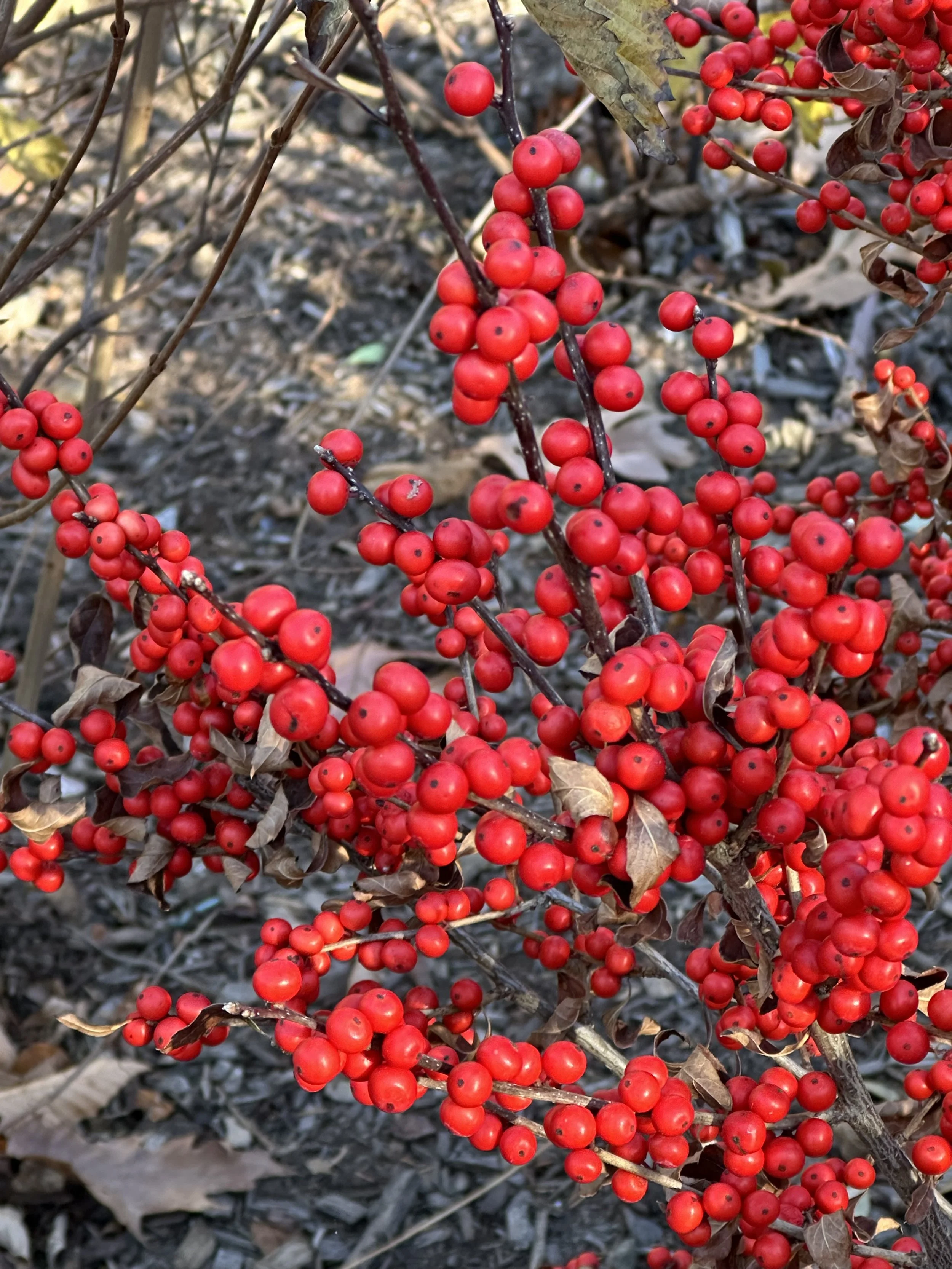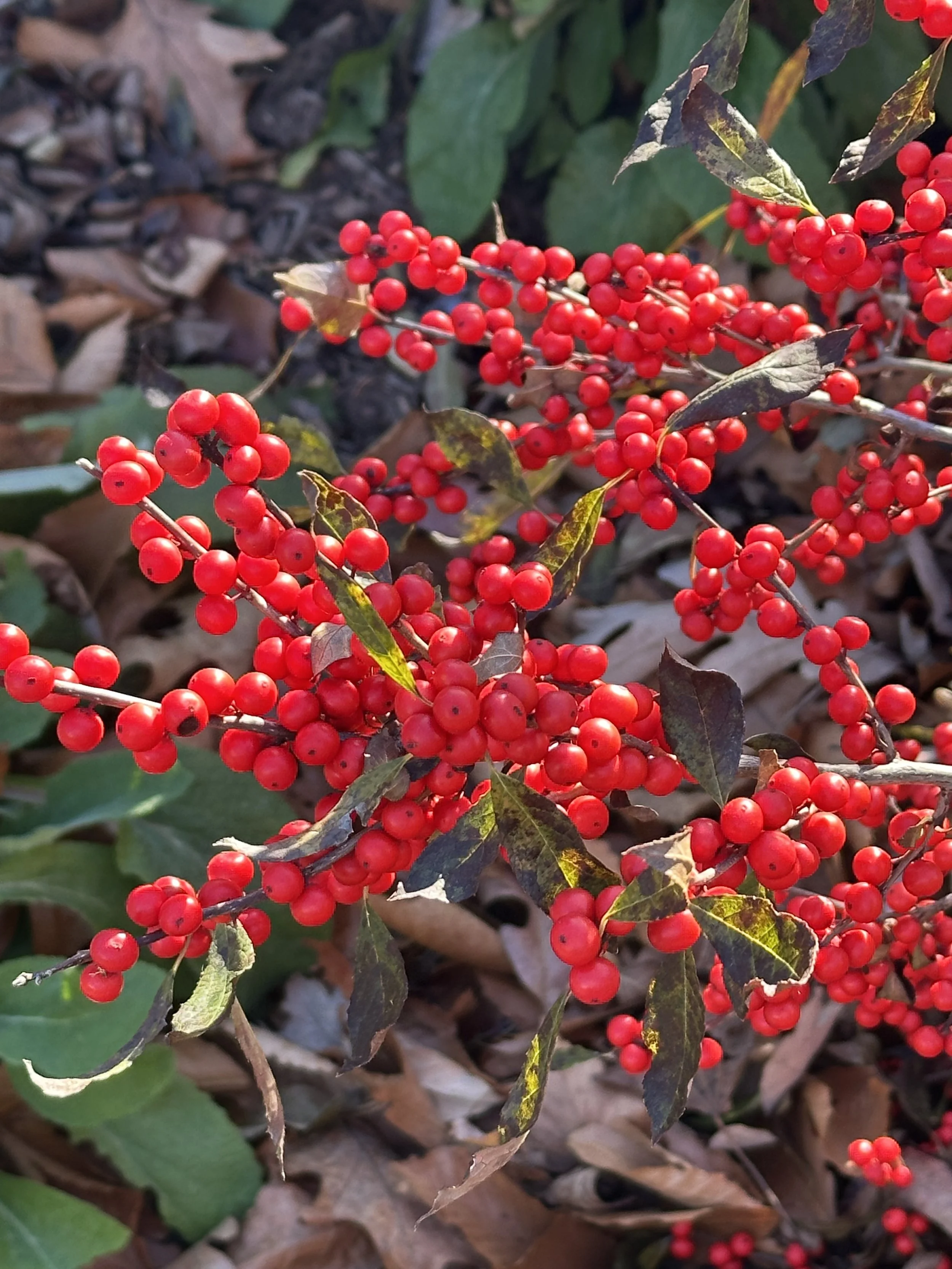Ilex Verticillata: A Standout in North Jersey Winter Landscapes
When it comes to native plants with year-round beauty and ecological benefits, Ilex verticillata, commonly known as winterberry holly, deserves a top spot in North Jersey gardens.
This deciduous holly offers striking red berries that brighten winter landscapes, provide food for wildlife, and support sustainable landscaping practices. Whether you're in Denville, elsewhere in Morris County, or beyond, incorporating this New Jersey native into your garden can make a positive environmental impact while elevating your outdoor space.
What Makes Ilex Verticillata Special?
Winter Beauty
As other plants fade into dormancy, winterberry holly steps into the spotlight. After the leaves drop, vibrant red berries cling to bare branches, creating a dramatic and festive display. These berries persist through winter, making the plant a standout in snowy gardens.Wildlife Magnet
The berries of Ilex verticillata are an essential winter food source for birds like robins, cedar waxwings, and bluebirds. By planting winterberry, you're supporting North Jersey's ecosystem, particularly during colder months when food is scarce.Adaptability
This plant thrives in various conditions, including the wet soils of rain gardens or the drier areas of mixed borders. It tolerates clay and acidic soils, making it a resilient choice for Morris County's diverse landscapes.Pollinator Support
While the berries steal the show in winter, spring blooms are equally important. The small, inconspicuous flowers attract native bees, boosting pollinator populations in your garden.
How to Use Ilex Verticillata in Your Garden
As a Rain Garden Staple
In places like Denville, where managing stormwater is critical, winterberry holly can play a vital role. Its ability to thrive in wet soils makes it perfect for rain gardens, helping to mitigate flooding while beautifying the area.For Seasonal Interest
Pair Ilex verticillata with evergreen shrubs like juniper or cedar to create a striking contrast during winter. In the fall, combine it with asters or goldenrod for a colorful pollinator-friendly display.Hedges and Screens
Plant winterberry in groups to create natural hedges. Choose both male and female plants to ensure berry production; one male can pollinate multiple females.
Why Choose Native Plants for North Jersey Landscaping?
Sustainable landscaping is essential for maintaining the ecological health of Morris County and beyond. Native plants like Ilex verticillata:
Support Biodiversity: Provide habitat and food for local wildlife.
Reduce Maintenance: Adapted to New Jersey's climate, they require less water, fertilizers, and pesticides.
Enhance Soil Health: Deep root systems improve soil structure and reduce erosion.
Planting and Caring for Winterberry Holly
Sunlight: Full sun to part shade.
Soil: Prefers acidic, well-drained to wet soils.
Water: Regular watering during the first year; drought-tolerant once established.
Pruning: Late winter or early spring to maintain shape.
Companion Plants: Pair with other natives like Clethra alnifolia or Viburnum nudum for a multi-season display.
Adding Ilex verticillata to your garden isn't just about aesthetics—it's a commitment to sustainable landscaping and fostering a thriving ecosystem in Morris County, New Jersey. Whether you're designing a garden in Denville or another North Jersey town, winterberry holly offers beauty, resilience, and ecological value that will keep your landscape vibrant through every season.



